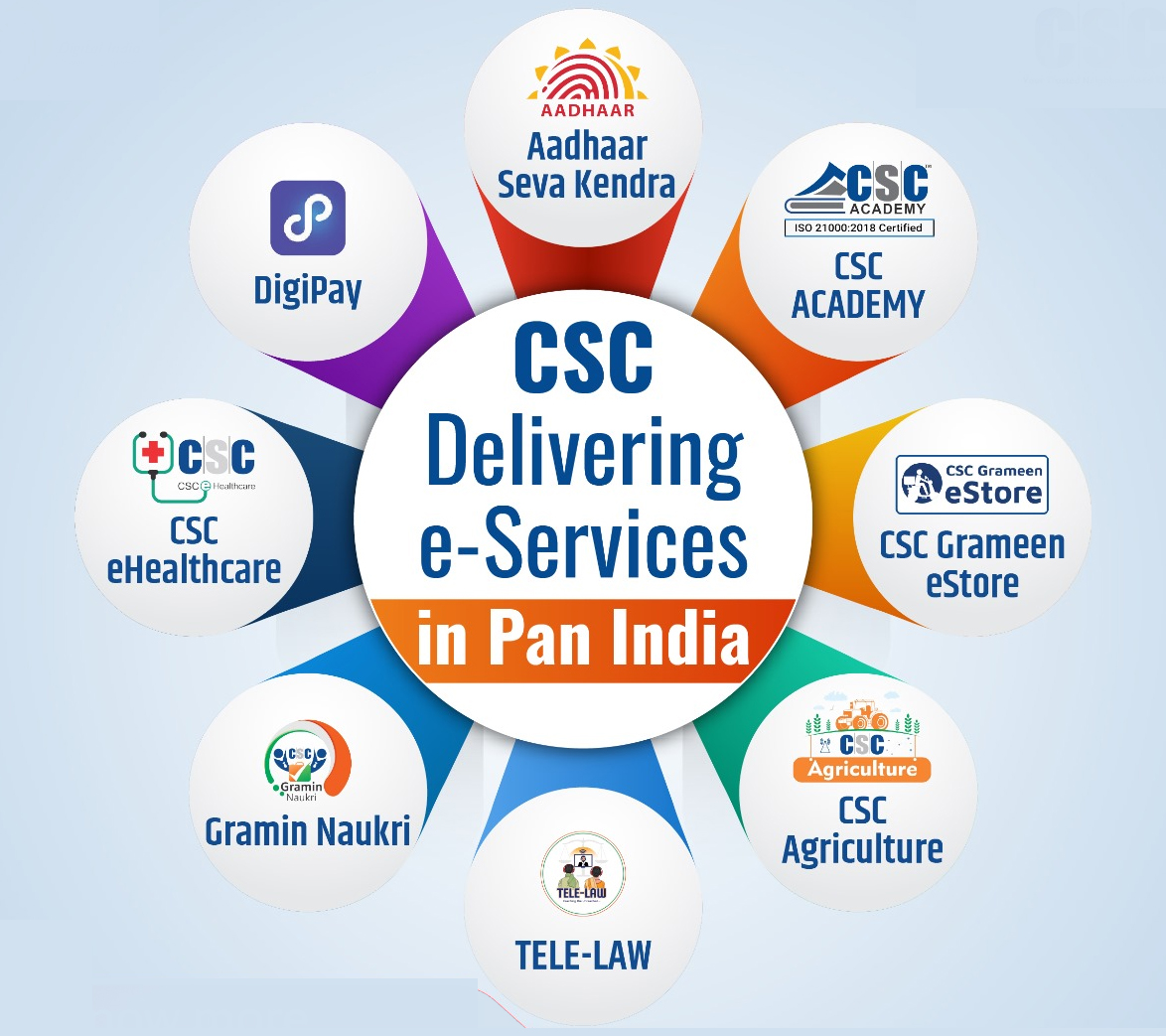Context:
The Common Services Centres (CSC), a flagship initiative under the Government of India's Digital India programme, will celebrate its 16th Establishment Day on July 16, 2025. The event will be inaugurated by Union Minister Shri Amit Shah at Yashobhoomi, New Delhi, in the presence of Union Ministers Shri Ashwini Vaishnaw and Shri Jitin Prasada.
Common Service Centres (CSCs):
The concept of Common Service Centres (CSCs) was introduced in 2006 under the National e-Governance Plan (NeGP) with the primary objective of establishing a network of ICT-enabled access points for delivering various government services to the rural populace. Over time, the scope of CSCs has expanded significantly, and they have become a vital component of the government's strategy to enhance digital inclusion.
Evolution of CSCs:
· 2006: Introduction of CSCs under NeGP to provide government services to rural areas.
· 2015: CSCs were further empowered under the Digital India program to offer a broader range of services.
Achievements of CSC:
Over the last 16 years, CSC has become one of the world's largest digital service delivery networks, operating through over 6.5 lakh functional centres in both rural and urban areas. CSCs have played a pivotal role in empowering citizens in rural India, particularly women, farmers, and marginalized communities, by offering them digital access, financial inclusion, healthcare, and livelihood support at their doorstep.

Objectives of CSCs
The primary objectives of CSCs are:
· Digital Inclusion: To bridge the digital divide by providing digital services to rural and remote areas.
· Economic Inclusion: To extend banking and financial services to underserved communities.
· Educational and Skill Development: To promote online education and skill development programs.
· Social Inclusion: To facilitate easy access to various social welfare schemes and services.
Services Offered by CSCs
CSCs offer a diverse range of services, including:
· e-Governance Services: Aadhaar enrollment and update, PAN card application, ration card application, and certificates.
· Financial Services: Banking services, insurance, pension schemes, and loan services.
· Education: Online education, competitive exam preparation, scholarship applications, and skill development programs.
· Healthcare Services: Telemedicine, health insurance, and health information.
· Other Services: Bill payments, recharge services, ticket booking, and e-commerce.
Management and Operation
CSCs are operated by Village Level Entrepreneurs (VLEs), who are local entrepreneurs trained and supported by the CSC Special Purpose Vehicle (SPV). The CSC SPV provides necessary support, infrastructure, and training to VLEs, ensuring the smooth operation of CSCs.
Impact and Benefits
CSCs have had a significant impact on various fronts, including:
· Access to Services: CSCs provide easy and affordable access to a wide range of services, reducing the need for citizens to travel long distances to government offices.
· Time and Cost Savings: By offering services locally, CSCs save time and money for rural citizens.
· Employment Generation: VLEs create employment opportunities in rural areas.
· Digital Inclusion: CSCs contribute significantly to the goals of Digital India by promoting digital literacy and inclusion.
· Economic Development: Access to financial services through CSCs promotes economic inclusion and rural economic growth.
Challenges :
While CSCs have been successful in many areas, they face several challenges, including:
· Infrastructure Issues: Poor internet connectivity and unreliable power supply in rural areas.
· Training and Support: Need for continuous training and technical support for VLEs.
· Awareness: Lack of awareness among citizens about the services available at CSCs.
Conclusion:
The CSC's 16th Foundation Day celebration is a testament to the government's commitment to ensuring inclusive development through digital means. As a model of public-private partnership, CSC has become the cornerstone of digital governance, citizen-centric delivery, and community transformation.






